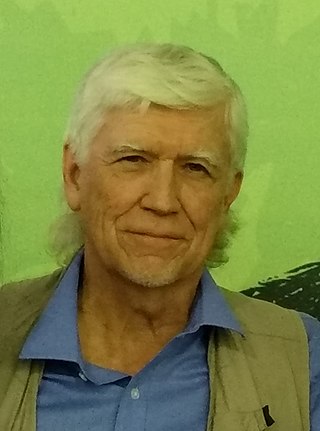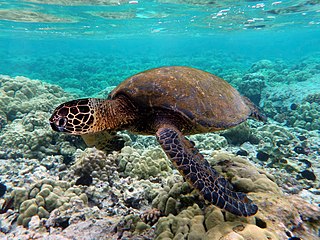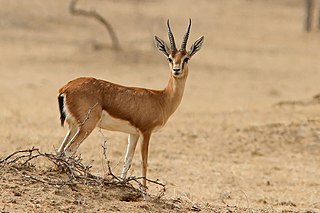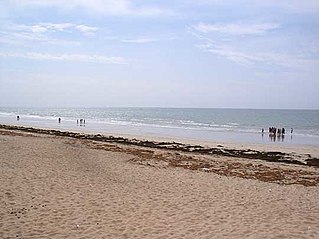
Dame Alison Fettes Richard, is an English anthropologist, conservationist and university administrator. She was the 344th Vice-Chancellor of the University of Cambridge, the third Vice-Chancellor of Cambridge since the post became full-time, and the second woman. Before arriving at Cambridge, she served as the provost of Yale University from 1994 to 2002.

James Leonard Bacchus is an American lawyer, businessman, and politician who served as a member of the U.S. House of Representatives from Florida from 1991 to 1995. He was a founding member and twice chairman of the Appellate Body of the World Trade Organization in Geneva, Switzerland from 1995 to 2003. He later became a fellow of the European Institute for International Law and International Relations.

Russell Alan Mittermeier is an American primatologist and herpetologist. He has written several books for both popular and scientist audiences, and has authored more than 300 scientific papers.

The green sea turtle, also known as the green turtle, black (sea) turtle or Pacific green turtle, is a species of large sea turtle of the family Cheloniidae. It is the only species in the genus Chelonia. Its range extends throughout tropical and subtropical seas around the world, with two distinct populations in the Atlantic and Pacific Oceans, but it is also found in the Indian Ocean. The common name refers to the usually green fat found beneath its carapace, due to its diet strictly being seagrass, not to the color of its carapace, which is olive to black.

The chinkara, also known as the Indian gazelle, is a gazelle species native to India, Iran, Afghanistan and Pakistan.

Sandspit Beach is a beach located in south west of Karachi, Sindh, Pakistan. It is a very famous tourist spot.

The Wisconsin Department of Natural Resources (WDNR) is a government agency of the U.S. state of Wisconsin charged with conserving and managing Wisconsin's natural resources. The Wisconsin Natural Resources Board has the authority to set policy for the WDNR. The WDNR is led by the Secretary, who is appointed by the Governor of Wisconsin. The WDNR develops regulations and guidance in accordance with laws passed by the Wisconsin Legislature. It administers wildlife, fish, forests, endangered resources, air, water, waste, and other issues related to natural resources. The central office of the WDNR is located in downtown Madison, near the state capitol.
Julia Marton-Lefèvre is a French - US environmentalist and academic. She studied history, ecology and environmental planning in the US and in France, and was born in Hungary.

The wildlife of Pakistan comprises a diverse flora and fauna in a wide range of habitats from sea level to high elevation areas in the mountains, including 195 mammal, 668 bird species and more than 5000 species of Invertebrates. This diverse composition of the country's fauna is associated with its location in the transitional zone between two major zoogeographical regions, the Palearctic, and the Oriental. The northern regions of Pakistan, which include Khyber Pakhtunkhwa and Gilgit Baltistan include portions of two biodiversity hotspot, Mountains of Central Asia and Himalayas.

Pakistan's native fauna reflect its varied climatic zones. The northern Pakistan, which includes Khyber Pakhtunkhwa and Gilgit Baltistan, has portions of two biodiversity hotspots, Mountains of Central Asia and Himalayas.
Ian Richard Swingland is a British conservationist, convicted in 2017 of conspiring to commit fraud by false representation. He founded DICE at the University of Kent in 1989, recognised as one of the first interdisciplinary research and postgraduate training institutes in the world concentrating on biodiversity, communities and sustainable development. While at DICE he served as director and was elected to the first chair in Conservation Biology in the United Kingdom.

Hingol National Park or Hungol National Park is one of the largest national parks in Pakistan, located in the Makran coastal region. The park covers an area of about 6,100 square kilometres (2,400 sq mi) and is located 190 km from Karachi in the three districts of Gwadar, Lasbela and Awaran in Balochistan. Hingol was declared a national park in 1988.

Pavan Sukhdev is an Indian environmental economist whose field of studies include green economy and international finance. He was the Special Adviser and Head of UNEP's Green Economy Initiative, a major UN project suite to demonstrate that greening of economies is not a burden on growth but rather a new engine for growing wealth, increasing decent employment, and reducing persistent poverty. Pavan was also the Study Leader for the ground breaking TEEB study commissioned by G8+5 and hosted by UNEP. Under his leadership, TEEB sized the global problem of biodiversity loss and ecosystem degradation in economic and human welfare terms, and proposed solutions targeted at policy-makers, administrators, businesses and citizens. TEEB presented its widely acclaimed Final Report suite at the UN meeting by Convention on Biological Diversity (CBD) in Nagoya, Japan.

Malik Amin Aslam is a Pakistani environmentalist and politician who served as Federal Minister of State for Environment from 2004-2007 in the cabinet of Prime Minister Shukat Aziz https://www.cabinet.gov.pk/SiteImage/Misc/files/Federal%20Cabinet%201947/24%20Shaukat%20Aziz%2C%2028-08-2004%20to%2015-11-2007.pdf/and later as Federal Minister and Adviser to former Prime Minister of Pakistan Imran Khan for Climate Change. He also serves as Vice President in IUCN.
C. Kenneth Dodd Jr., is an American herpetologist and conservationist. He earned his Ph.D. under Edmund D. Brodie Jr. from Clemson University in 1974. From 1976 to 1984 he worked in the research division of the U.S. Fish and Wildlife Service, then he transferred to the U.S. Geological Survey in 1984, where he remained until his retirement in 2007. He is currently Courtesy Associate Professor in the Department of Wildlife Ecology and Conservation, University of Florida and an Affiliate of the Florida Museum of Natural History. He has published over 200 papers, reviews and books. Much of his research focuses on turtle and amphibian ecology/conservation. He, along with R. Bruce Bury and Garry Fellers were the first to suggest widespread amphibian declines were progressing. He is a nationally recognized herpetologist.
While STEM fields all over the world are dominated by men, the number of Pakistani women in 'STEM' is low due to one of the highest gender gaps in STEM fields. However, over the time, some Pakistani women have emerged as scientists in fields like Physics, Biology and computer sciences.
Eleanor Sterling was an conservationist and biologist. She was the director of the Center for Biodiversity and Conservation at the American Museum of Natural History and also became the director of Hawaiʻi Institute of Marine Biology (HIMB) at the University of Hawaiʻi Mānoa (UHM).
Allison Christine Alberts is an American herpetologist and conservation biologist. She began her career at the San Diego Zoo Wildlife Alliance in 1990 as a postdoctoral fellow, eventually serving as the zoo's Chief Conservation Officer and Benirschke Chair of Research from 2005 to 2020, the first woman in that role. She is known for her work with rock iguanas, Komodo dragons, sea turtles, desert tortoises, and native California lizards and snakes, and she is the author of more than 100 scientific and popular articles and three books.











